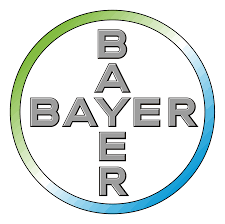| Farmers now have a more powerful tool for black-grass control with the launch of Hamlet, the latest herbicide from Bayer.
Hamlet is a post-emergence herbicide for winter wheat that continues Bayer’s track record of providing leading black-grass control products such as Atlantis WG (mesosulfuron + iodosulfuron) and Liberator (flufenacet + diflufenican).
“Hamlet offers a step up in control compared to Atlantis WG,” says Ben Coombs of Bayer. “We have several years’ data from trials and the improvement is about 10% more black-grass control than Atlantis WG and a similar amount for rye-grass control.”
The active substances in Hamlet are mesosulfuron, iodosulfuron and diflufenican. Bayer has used these actives in other products but the amount of these actives delivered and the quality of formulation in Hamlet sets it apart. Hamlet has an advanced oil dispersion formulation that increases speed and quantity of uptake of the active substances by the plant.
Farmers that are used to Atlantis WG need to be aware of one or two differences to get the most out of the new product, according to Dr Gordon Anderson-Taylor of Bayer.
“Hamlet should be used during the autumn and winter period when its diflufenican component will provide maximum efficacy. So we would not recommend using it once spring growth starts.” The exact date of this will vary from year-to-year but Bayer’s recommendation is to only use it until the end of February.
“With Hamlet, it’s probably better to focus on how early you can spray it rather than how late,” continues Dr Anderson-Taylor. “Our trials show that early application gives you an improvement against black-grass with enhanced metabolism resistance (EMR) – the most common type of resistance in UK black-grass.”
The aim is to apply Hamlet when black-grass is at the 1–3 leaf stage before it tillers – typically that will mean applying from November onwards.
“Hamlet is the last stage in a programme that uses delayed drilling – around 15 October – paired with Liberator and probably one or two other products at pre-em. After the pre-em, any survivors are weakened so coming back in the autumn with a post-em means that the whole programme gets an uplift in control.”
Applying Hamlet at any point before tillering will give worthwhile control and a yield gain that covers the cost of application in most situations. It’s also important to note that Hamlet is also strong against rye-grass and meadow-grass with a good spectrum of broad-leaved weeds controlled too.
Don’t overlook application technique is the final message from Bayer. Hamlet should be applied with the adjuvant biopower in a spray volume of 100–300 L/ha as a Fine–Medium spray. |

